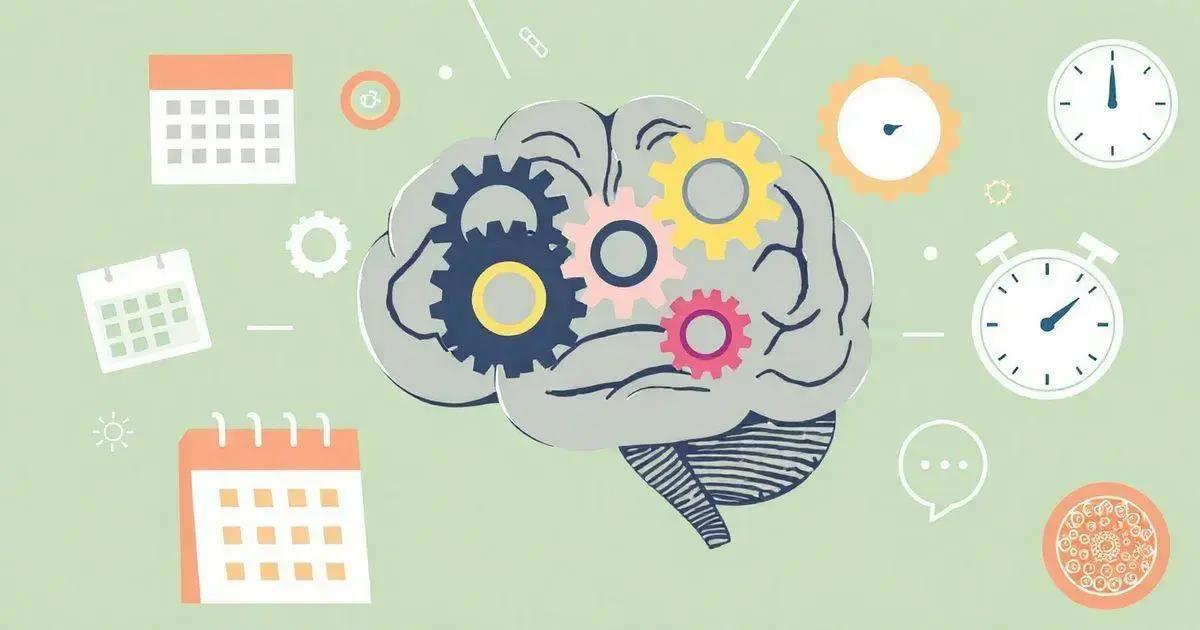Effective productivity habits are key to boosting your performance and achieving your goals. By adopting the right practices, you can make the most of your time and increase your efficiency both at work and in your personal life.
These habits help you stay organized, minimize distractions, and focus on what matters most. With small changes in your routine, you’ll start to see big results.
Curious about how to make these habits work for you? Read on to learn simple strategies that can unlock your full potential.
Understanding Effective Productivity Habits
Understanding effective productivity habits is crucial for anyone looking to enhance their daily performance. These habits are practices that help individuals manage their time and tasks efficiently. Incorporating them into your routine can lead to significant improvements in both work and personal life.
What are Effective Productivity Habits?
Effective productivity habits are techniques that enable you to work smarter rather than harder. They often include setting clear goals, prioritizing tasks, and minimizing distractions. By focusing on what truly matters, you can accomplish more in less time.
The Importance of Goal Setting
Setting specific, measurable, achievable, relevant, and time-bound (SMART) goals is a fundamental element of effective productivity. When you know what you want to achieve, it becomes easier to plan your tasks and monitor your progress.
Prioritization for Efficiency
Another key habit is learning to prioritize your tasks. Using methods like the Eisenhower Matrix can help you identify what is urgent and important. This way, you can tackle high-priority tasks first, ensuring that you make the most of your time.
Minimizing Distractions
In our digital age, distractions are everywhere. To foster effective productivity habits, it is essential to create an environment that limits these distractions. This might involve setting specific times to check emails or silencing notifications on your phone while working.
Building Consistency
Finally, consistency is critical. Habits take time to develop, so it’s important to practice them regularly. By dedicating time each day to your productivity routine, you will gradually see improvement.
The Science Behind Productivity

The science behind productivity delves into how our brains work and how this knowledge can improve our efficiency. Understanding cognitive psychology helps us grasp why certain habits and techniques enhance our productivity. Effective productivity habits are key to unlocking this potential, allowing us to focus and achieve more with less effort.
Brain Function and Focus
Our brains have limited attention resources. When we focus on too many tasks, it can lead to mental fatigue and decreased performance. Research suggests that concentrating on one task at a time, known as single-tasking, can result in higher quality work and faster completion times.
Impact of Breaks and Downtime
Studies have shown that taking breaks can significantly boost productivity. The Pomodoro Technique, which involves working for 25 minutes followed by a 5-minute break, allows our brains to recharge. This technique leads to sustained focus and better overall performance.
Habit Formation in the Brain
Creating Effective productivity habits involves understanding how habits form in the brain. By repeating a behavior, we establish a neural pathway that makes the action easier over time. It typically takes about 21 days to form a new habit, so consistency is key.
Motivation and Reward Systems
The brain’s reward system plays a vital role in our motivation levels. Completing tasks triggers the release of dopamine, the “feel-good” hormone. Setting achievable goals and rewarding yourself once completed can enhance motivation and maintain momentum.
Environmental Factors
Your environment significantly influences productivity. A well-organized workspace reduces distractions and fosters focus. Personalizing your space with items that inspire you can create a positive atmosphere conducive to productivity.
Daily Routines for Success
The Morning Routine
Your day should start with a strong morning routine. Begin by setting a consistent wake-up time to help your body establish a natural rhythm. Include activities like meditation, light exercise, or reading to stimulate both your mind and body.
Planning the Day
After your morning routine, take a few minutes to plan your day. Use a planner or an app to list your top priorities. Focus on completing the most important tasks first to ensure productivity.
Time Blocks
Implementing time blocks for tasks can help you stay focused. Allocate specific periods for different activities, such as emails, meetings, and deep work. This structure reduces distractions and keeps you on track.
Taking Breaks
Don’t forget to schedule breaks throughout your day. Taking short breaks every hour can boost your productivity. Use this time to stretch, hydrate, or take a quick walk. It helps refresh your mind and enhances your focus.
Evening Reflection
End your day with an evening reflection. Spend a few minutes evaluating what you accomplished and what can be improved. This practice encourages continuous growth and helps you prepare for the next day’s challenges.
Overcoming Procrastination

Understanding Procrastination
Procrastination often stems from fear of failure, perfectionism, or feeling overwhelmed. Understanding why you procrastinate is the first step towards overcoming it. Identify your triggers and acknowledge your feelings to address them.
Setting Smaller Goals
One effective way to combat procrastination is by breaking tasks into smaller, manageable goals. Instead of feeling daunted by a large project, divide it into smaller parts. This method makes it easier to start and reduces anxiety.
Using the Two-Minute Rule
The Two-Minute Rule is a simple technique where you commit to working on a task for just two minutes. Often, starting is the hardest part. Once you begin, you may find it easier to continue after the two minutes are up.
Creating Accountability
Accountability can help you stay on track. Share your goals with a friend or colleague who can provide support and encouragement. Checking in with them regularly can motivate you to complete tasks and hold you accountable.
Utilizing Tools and Techniques
There are many tools available to help you overcome procrastination. Apps for time management, such as Trello or Todoist, can help you organize tasks and stay focused. Consider using a timer to keep yourself accountable and prevent distractions.
Long-term Benefits of Good Habits
Long-term benefits of good habits span various aspects of life, including personal growth, health, and productivity. Establishing positive habits can set the foundation for sustained success, and practicing Effective productivity habits is one key component that can significantly enhance your daily life.
Improved Mental Health
Good habits can lead to better mental health. Regular exercise, a balanced diet, and sufficient sleep contribute to emotional well-being. When you consistently prioritize your health, it positively influences your mindset and resilience.
Increased Productivity
Developing effective productivity habits means you are more organized and less distracted. When these habits become routine, you can accomplish tasks more efficiently and focus on important projects, resulting in greater overall productivity.
Better Time Management
Practicing good habits helps you manage your time effectively. By planning your day and setting priorities, you can allocate time to different tasks and reduce stress. This improved management can lead to more free time for personal interests and relaxation.
Stronger Relationships
Building good habits also enhances your relationships. Communicating regularly, actively listening, and showing appreciation are all habits that contribute to stronger connections with family, friends, and colleagues.
Long-lasting Success
Finally, good habits pave the way to long-lasting success. The discipline developed from maintaining positive habits helps you navigate challenges and remain focused on your goals. As these habits compound over time, you will likely see significant progress in both personal and professional areas.
In Conclusion: Embracing Effective Productivity Habits
Adopting effective productivity habits is a journey toward unlocking your full potential. By understanding the science behind productivity, establishing daily routines, and overcoming procrastination, you can create a framework for success.
Moreover, cultivating long-term benefits through good habits greatly enhances your mental health, productivity, and relationships. These habits lay a strong foundation for achieving lasting success in both your personal and professional lives.
As you implement these strategies, remember that consistency is key. Embrace the process and watch as you evolve into a more focused, productive, and fulfilled individual.